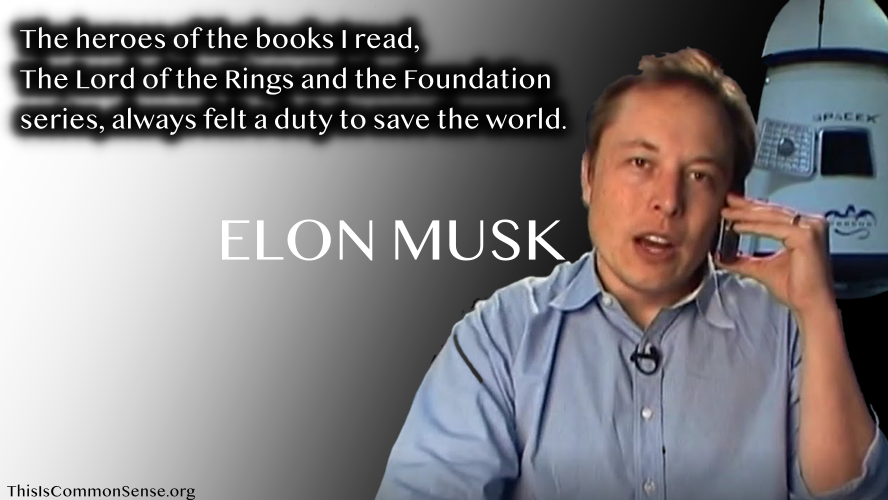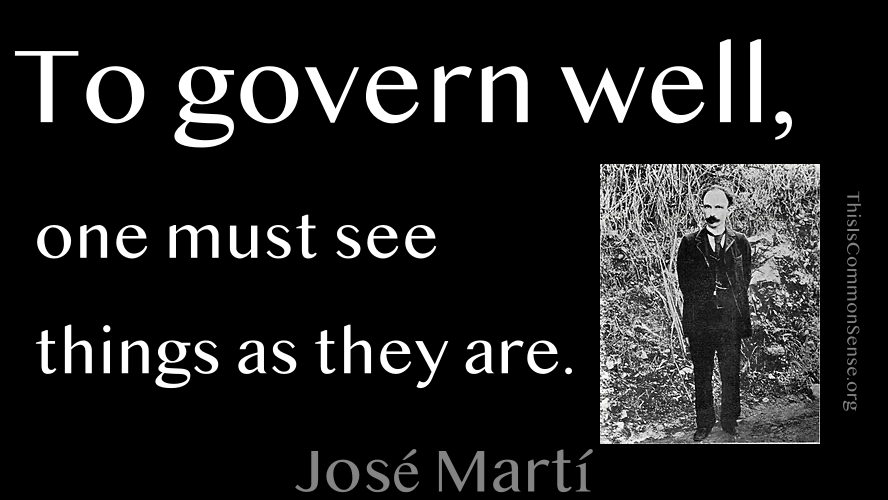The heroes of the books I read, The Lord of the Rings and the Foundation series, always felt a duty to save the world.
Elon Musk, quoted in Tad Friend’s feature in The New Yorker, “Plugged In” (August 17, 2009).


The heroes of the books I read, The Lord of the Rings and the Foundation series, always felt a duty to save the world.
Elon Musk, quoted in Tad Friend’s feature in The New Yorker, “Plugged In” (August 17, 2009).

The struggle between the opponents and defenders of capitalism is a struggle between innovators who do not know what innovation to make and conservatives who do not know what to conserve.
Simone Weil, “The Power of Words” (1937), published in Selected Essays 1934 – 1943 (1957).

If we understood the world, we would realize that there is a logic of harmony underlying its manifold apparent dissonances.
Finnish composer Jean Sibelius, as quoted in Henry Thomas and Dana Lee Thomas, Living Biographies of Great Composers (Garden City (NY): Blue Ribbon, [1940] 1946) p. 309.

The people who you think are radicals might really be conservatives. The people who you think are conservative might really be radical.
Avant-garde composer Morton Feldman, in Darmstadt, Germany, as quoted by Alex Ross in “Sibelius: Apparition from the Woods” (The New Yorker, July 9, 2007). After quoting Feldman’s statement at the 1984 Summer Courses for New Music, Ross adds that Feldman “began to hum the Sibelius Fifth.”

Sure, call me any ugly name you choose —
Langston Hughes, “Let America Be America Again “ Esquire (1936).
The steel of freedom does not stain.
From those who live like leeches on the people’s lives,
We must take back our land again,
America!

To govern well, one must see things as they are.
José Martí, Nuestra América (1891).